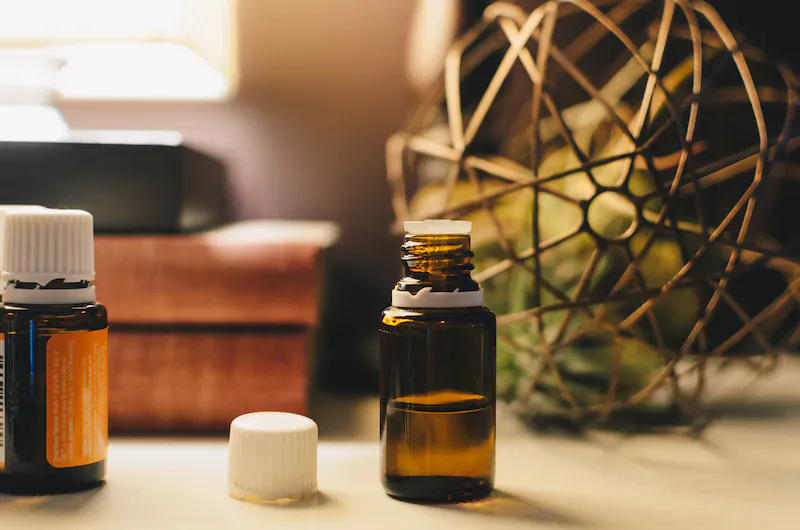Unlocking Your Sexual Well-Being

Exploring Sexual Well-Being: A Guide to a Fulfilling Sex Life
Sexual well-being is an important aspect of our lives that is often ignored or not given the attention it deserves. It encompasses a range of physical, emotional, and mental components that are necessary for a fulfilling sex life. As someone who has explored their own sexual well-being, I can tell you that it is a journey that requires patience, openness, and a willingness to learn about yourself and your partner.
One of the key factors in unlocking your sexual well-being is communication. It’s essential to talk openly and honestly with your partner about your needs, desires, and boundaries. It’s okay to ask questions, try new things, and make mistakes. Remember, every individual is unique, and what works for someone else may not work for you. So, it’s crucial to keep the lines of communication open to ensure both you and your partner feel comfortable and satisfied.
Another essential factor in sexual well-being is consent. Consent is more than just a “yes” or “no” answer; it’s about respecting each other’s boundaries and making sure that both parties feel safe and comfortable at all times. It’s essential to remember that consent is an ongoing conversation, and it’s okay to change your mind at any point. If you or your partner are unsure about something, it’s always best to talk it out and make sure you’re both on the same page.
It’s also important to explore your own sexuality and learn what works for you. This can involve self-exploration, trying new things, or seeking out resources such as books, podcasts, or workshops. Whatever your approach, remember that there is no right or wrong way to explore your sexuality, and it’s okay to take things at your own pace.
In conclusion, sexual well-being is an important aspect of our lives that deserves our attention and care. By communicating openly and honestly with our partners, respecting each other’s boundaries, and exploring our own sexuality, we can unlock a fulfilling and satisfying sex life. Remember to be patient with yourself and your partner, and don’t be afraid to ask for help or seek out resources if you need them.
The Science of Sexual Response: Turning on the Ons and Turning off the Offs
Sexual response is a complex process that involves both physical and psychological factors. The process can be divided into four stages: excitement, plateau, orgasm, and resolution. Each stage has a unique set of physical and emotional responses.
The excitement stage is the first stage of sexual response. It is characterized by an increase in blood flow to the genitals and a buildup of sexual tension. This stage is often accompanied by physical sensations such as increased heart rate, rapid breathing, and muscle tension.
The plateau stage is the second stage of sexual response. During this stage, the body prepares for orgasm. Breathing and heart rate continue to increase, and muscle tension increases further. In women, the vagina expands and the clitoris becomes more sensitive. In men, the penis becomes fully erect.
The orgasm stage is the third stage of sexual response. It is characterized by a release of sexual tension that has built up during the first two stages. During orgasm, both men and women experience rhythmic contractions of the pelvic muscles, which can be pleasurable.
The final stage of sexual response is the resolution stage. During this stage, the body returns to its normal state. Blood flow to the genitals decreases, and muscle tension is released. Men experience a refractory period, during which they are unable to achieve another erection or orgasm for a period of time.
Understanding the science of sexual response can help you identify what turns you on and what turns you off. It can also help you communicate your needs and desires with your partner. Remember, sexual response is a normal and healthy part of human sexuality, and there is no one right way to experience it.
The Dual Control Model: Understanding Accelerators and Brakes in Sexual Response
Have you ever found yourself wondering why you get aroused by some things and not by others? Or why some days you feel more sexually responsive than others? The Dual Control Model of sexual response may have some answers for you.
The Dual Control Model is a framework developed by researchers to explain how sexual response works in humans. According to this model, sexual response is controlled by two opposing processes: accelerators and brakes.
Accelerators are things that turn on your sexual response, such as erotic thoughts, physical touch, and visual cues. On the other hand, brakes are things that inhibit or turn off your sexual response, such as anxiety, distractions, or physical discomfort.
Everyone’s accelerators and brakes are unique, which is why different people may respond differently to the same stimuli. For example, one person may find a particular scent arousing, while another person may find it unpleasant.
Moreover, the Dual Control Model helps explain why some people experience sexual dysfunction, such as low libido or difficulty reaching orgasm. If one’s brakes are too sensitive, they may struggle to get aroused, even in the presence of sexual stimuli. Similarly, if one’s accelerators are not sensitive enough, they may struggle to get aroused even with a partner they find attractive.
By understanding the Dual Control Model and identifying your personal accelerators and brakes, you can improve your sexual experiences and address any sexual dysfunction you may be experiencing.
Unlocking Your Sexual Well-Being: Strategies for Improving Sexual Functioning
If you’re looking to improve your sexual functioning and unlock your authentic sexual well-being, there are several strategies that can help. First, it’s important to focus on your own pleasure and desires, rather than solely on your partner’s. This can involve exploring your own body through masturbation, using sex toys, or trying new sexual positions and activities.
Additionally, communication with your partner is key. Talking openly and honestly about your needs and desires can help build trust and intimacy in the relationship. It’s also important to prioritize emotional intimacy, as this can have a positive impact on sexual satisfaction.
Physical health is also important for sexual well-being. Regular exercise, a balanced diet, and getting enough sleep can all improve sexual functioning. For those experiencing sexual dysfunction, seeking medical or psychological help can also be beneficial.
Finally, it’s important to remember that everyone’s sexual journey is unique, and there is no “right” way to have sex. It’s important to hug your own desires and preferences, and not compare yourself to others or feel pressure to conform to societal norms.
By incorporating these strategies, you can improve your sexual functioning and access your authentic sexual well-being. Remember, sexual pleasure and satisfaction is a normal and healthy part of life, and it’s never too late to start exploring and hugging your own sexuality.
The Keys to Confidence and Joy: Knowing What’s True and Loving What’s True
Knowing what’s true about yourself and loving what’s true can be difficult, especially when it comes to sexuality. It’s important to remember that there’s no right or wrong way to express your sexuality, and it’s up to you to decide what feels authentic and true for you.
Self-reflection and self-awareness are key to understanding what brings you pleasure and what makes you uncomfortable. Being honest with yourself about your desires and boundaries can help you feel more confident and enabled in your sexual experiences.
It’s also important to communicate openly and honestly with your partner(s) about your wants and needs. It’s okay to have boundaries, and it’s important to respect your own and your partner’s limits. Communication can help build trust and intimacy in a sexual relationship, and can lead to more enjoyable and satisfying experiences for everyone involved.
Lastly, it’s important to remember that sexuality is a journey, and it’s okay to make mistakes or change your mind about what feels true for you. Hugging your sexuality and finding joy in your authentic expression can be a liberating and fulfilling experience.
The Secret Ingredient to Unlocking the Door to Your Sexual Well-Being
When it comes to sexual well-being, many factors come into play. From physical to psychological aspects, there is no one-size-fits-all approach. However, there is one secret ingredient that can help unlock the door to your sexual well-being: communication.
Communication is key in any relationship, and it is especially important when it comes to sexual well-being. Being able to communicate your needs, desires, and boundaries to your partner is essential to feeling comfortable and confident in your sexual experiences. It allows for mutual respect and understanding, and it can lead to a more fulfilling and satisfying sexual experience for both partners.
Effective communication also involves active listening and being open to feedback from your partner. It requires creating a safe and non-judgmental space where both partners can express themselves freely without fear of rejection or criticism.
While it may not always be easy to communicate about sex, especially if you are not used to talking about it, practicing open and honest communication can lead to a more fulfilling and satisfying sexual experience. It can also help to address any concerns or issues that may be impacting your sexual well-being.
Remember, sexual well-being is not just about physical pleasure, but also emotional and mental well-being. Communication is the key to unlocking the door to a healthy and fulfilling sexual relationship.
Two Evidence-Based Strategies for Increasing Confidence and Joy in Your Sex Life
Sexual confidence and joy are essential to our overall well-being and can have a significant impact on our relationships. Unfortunately, many people struggle with these aspects of their sexual lives due to a variety of reasons. The good news is that there are evidence-based strategies that can help you increase your confidence and joy in your sex life.
One strategy is to practice mindfulness, which involves being present in the moment without judgment. Mindfulness can help you connect with your body and your partner in a more meaningful way, and it can also help you become more aware of your sexual desires and preferences. This awareness can lead to more enjoyable and satisfying sexual experiences. Mindfulness can be practiced in many ways, such as meditation, yoga, or simply focusing on your breath during sex.
Another strategy is to grow self-compassion. Many people are highly critical of themselves when it comes to sex, which can lead to feelings of shame, anxiety, and inadequacy. Self-compassion involves treating yourself with kindness, understanding, and acceptance, just as you would treat a close friend. This approach can help you overcome negative self-talk and improve your overall well-being.
By practicing mindfulness and self-compassion, you can increase your confidence and joy in your sex life. Remember, sex is a natural and healthy part of life, and it’s important to prioritize your sexual well-being.
Hugging Your Body and Growing a Calm, Curious Mindset for Sexual Well-Being
Sexual well-being is not just about having sex. It’s also about growing a healthy relationship with your body, your emotions, and your thoughts. Hugging your body and growing a calm, curious mindset can help you feel more comfortable with your sexuality and enhance your overall well-being.
One way to grow a calm and curious mindset is through mindfulness practices such as meditation or yoga. These practices can help you become more aware of your body and your thoughts, which can help you let go of any negative or anxious feelings you may have about sex.
Another way to hug your body is by practicing self-care. This can include taking care of your physical health by exercising regularly, eating a healthy diet, and getting enough sleep. It can also involve taking care of your emotional health by practicing self-compassion and self-love.
It’s important to remember that everyone’s body is different, and that’s okay. Hugging your body means accepting and celebrating your unique features and finding ways to feel confident and comfortable in your own skin. This can involve practicing positive self-talk, wearing clothing that makes you feel good, and engaging in activities that make you feel confident and enabled.
Overall, hugging your body and growing a calm, curious mindset can help you feel more comfortable with your sexuality and enhance your overall well-being. It’s important to take the time to care for yourself and your body, and to remember that your sexual well-being is an important part of your overall health and happiness.
Conclusion
Sexual well-being is a crucial aspect of our overall health and happiness, yet it is often overlooked or stigmatized in our society. By understanding the science behind sexual response, the importance of communication and consent, and strategies for improving sexual functioning, we can unlock the door to a more fulfilling sex life.
Hugging our bodies, growing a calm and curious mindset, and loving what is true can help us overcome shame and anxiety, and increase our confidence and joy in the bedroom. By prioritizing our sexual well-being, we can strengthen our relationships, boost our self-esteem, and enhance our overall quality of life.
Remember, everyone’s journey to sexual well-being is unique, and it’s okay to seek help or guidance when needed. With an open mind and a willingness to learn, we can all take steps towards a more fulfilling and satisfying sex life.




